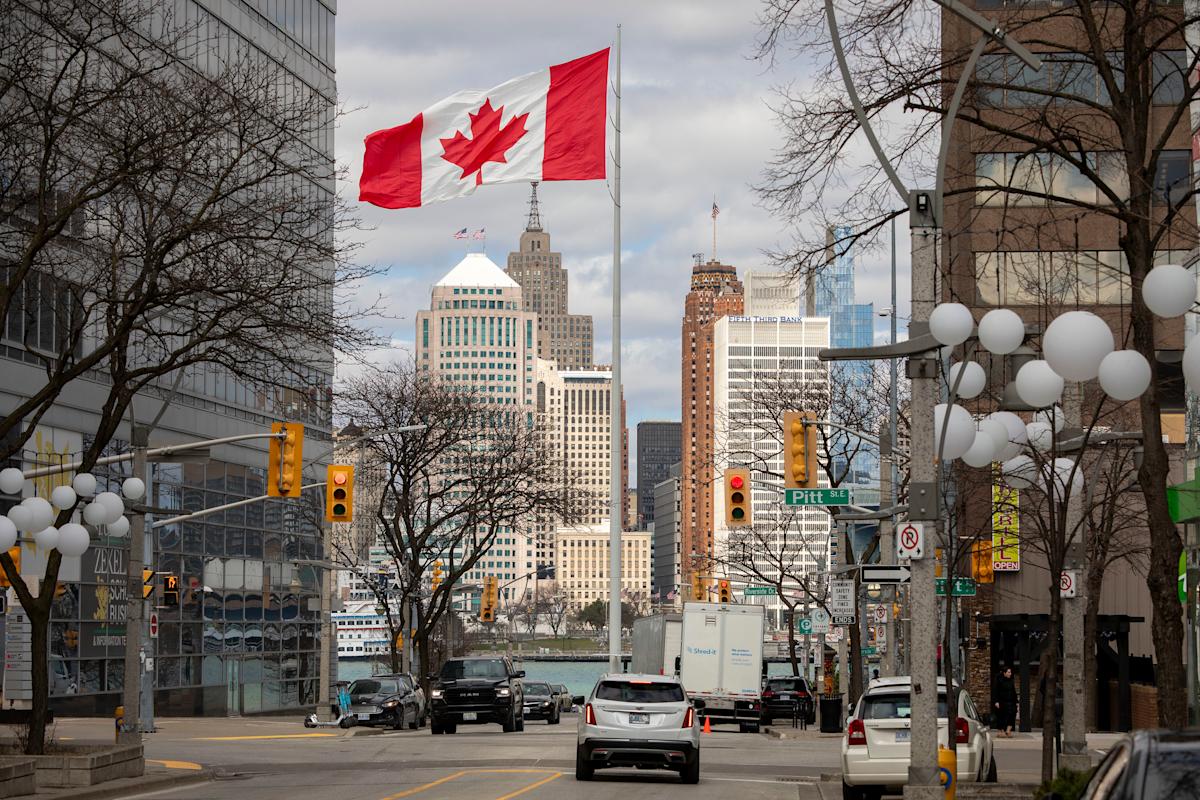Deloitte projects meaningful tariff impacts across the economy. Low business confidence should slow investment and job growth, and drive the unemployment rate above seven per cent, the outlook says. (Photo by Bill Pugliano/Getty Images) · Bill Pugliano via Getty Images
The “extremely uncertain economic operating environment” defined by U.S. President Donald Trump’s trade policies will have broad fallout for Canadians, but it has also created momentum for positive change, the latest economic outlook from consulting firm Deloitte says.
“It’s actually a way that we see forward now, and because we’ve had this prod from all of the very aggressive language coming towards us, it does seem that now is a bit of a moment,” Deloitte chief economist Dawn Desjardins told Yahoo Finance Canada in an interview.
“Some things change on the margin, but it does feel a bit different, I have to say, compared to other times when people were talking up policy changes that may or may not occur.”
The Deloitte report, published Wednesday morning, projects significant impacts on labour, consumer spending, business investment, imports and exports, and monetary and fiscal policy as a result of the trade war. At the same time, it notes that Canada has thus far seen more favourable tariffs than most other countries.
“In an unexpected way, we might have a little bit of an advantage,” Desjardins said. “Because you didn’t feel that, certainly, at the beginning of the year. It did not feel like it was going to be Canada” that suffered less.
Deloitte currently projects a “modest downturn” in the second and third quarters of this year. It expects GDP growth of 1.2 per cent in 2025, down from around two per cent in its previous, pre-tariff outlook — but the report points out that deep uncertainty about nearly everything in the trade war makes a single projection less meaningful. For example, an elimination of the current tariff exemption for goods covered by the Canada–U.S.–Mexico Agreement would mean “Canada’s real GDP would be permanently lower by around three per cent by 2030,” the outlook says.
“With such a wide range of potential outcomes and a lack of clarity on the path forward, a natural response is to develop guidelines to evaluate the implications of tariffs as the situation evolves,” Desjardins wrote in a foreword to the outlook. The key tariff factors to watch are their “size, product coverage, country coverage and retaliatory measures,” she adds.
In an unexpected way, we might have a little bit of an advantage.Dawn Desjardins, Deloitte chief economist
For now, Deloitte is projecting meaningful tariff impacts across the economy. Low business confidence should slow investment and job growth, and drive the unemployment rate above seven per cent, the outlook says — with the rate projected to reach 7.5 per cent in the third quarter of this year. Consumers will likely spend less, the outlook adds, though they may spend more on Canadian goods. Housing starts and renovations should slow, and home sales should remain sluggish.
Story Continues
